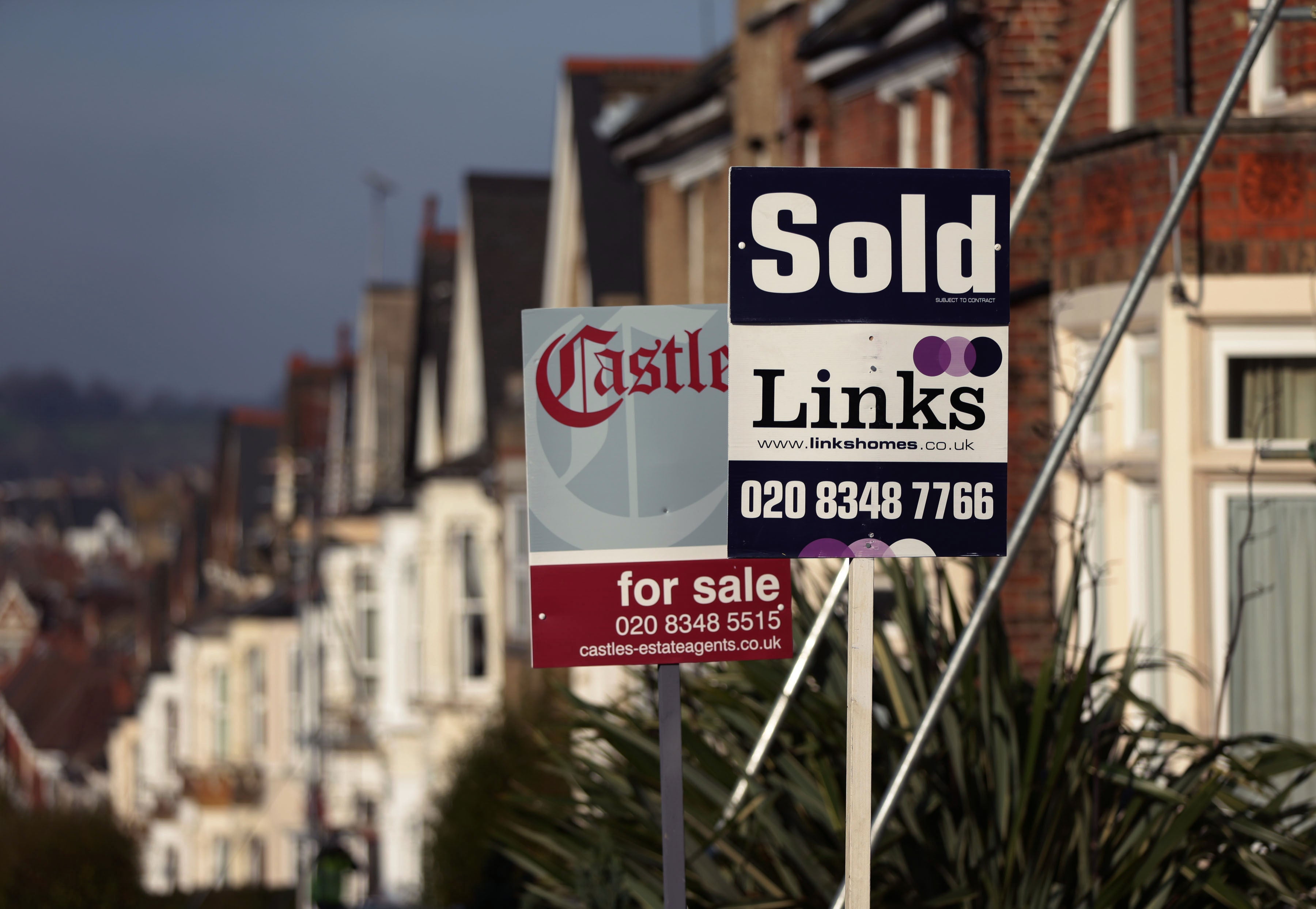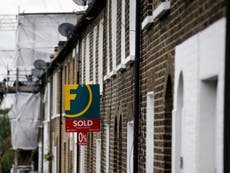Potential house sellers paused in February amid uncertainty, surveyors report
Rics’ survey of property professionals found that for the second month in a row, the number of new buyer inquiries fell in February

Your support helps us to tell the story
From reproductive rights to climate change to Big Tech, The Independent is on the ground when the story is developing. Whether it's investigating the financials of Elon Musk's pro-Trump PAC or producing our latest documentary, 'The A Word', which shines a light on the American women fighting for reproductive rights, we know how important it is to parse out the facts from the messaging.
At such a critical moment in US history, we need reporters on the ground. Your donation allows us to keep sending journalists to speak to both sides of the story.
The Independent is trusted by Americans across the entire political spectrum. And unlike many other quality news outlets, we choose not to lock Americans out of our reporting and analysis with paywalls. We believe quality journalism should be available to everyone, paid for by those who can afford it.
Your support makes all the difference.Potential house sellers held off putting their homes on the market in February amid coronavirus-related restrictions and uncertainty over the stamp duty holiday, according to surveyors.
The Royal Institution of Chartered Surveyors (Rics) said there is a “very clear message” that more needs to be done to address supply shortfalls, amid mounting expectations that house prices and rents will climb higher.
Activity is expected to pick up in the coming three months, partly helped by the anticipated easing of lockdown measures, according to Rics’ latest survey of property professionals.
Rics said the majority of its survey feedback was gathered before chancellor Rishi Sunak announced in the Budget that a stamp duty holiday, which was due to end in March, will be extended in its current form until the end of June and then tapered until the start of October.
The current temporary stamp duty threshold for homes is £500,000.
From July 1 to September 30, the threshold will be £250,000 and from October 1 it will revert to the normal threshold of £125,000. Stamp duty applies in England and Northern Ireland.
Rics’ survey of property professionals found that for the second month in a row, the number of new buyer inquiries fell in February.
The number of properties being listed for sale also fell for the second consecutive month, with professionals citing lockdown restrictions and the wait for clarity about the stamp duty holiday extension as reasons behind the fall in appetite.
The number of sales remained broadly unchanged, with a net balance of 1 per cent of surveyors reporting an increase rather than a decrease in completed transactions.
Sales are expected to pick up in the next few months, with the strongest expectations of this recorded since October 2020.
Looking at the year ahead, sales expectations are even more bullish, with the strongest expectations recorded since February 2020 that transaction levels will be higher in 12 months’ time.
House price growth maintained strong momentum in February, with a net balance of 52 per cent of surveyors reporting prices increasing rather than decreasing in February.
Surveyors across all parts of the UK noted some degree of price growth, with Wales, the North of England and Northern Ireland all exhibiting particularly strong readings, the report said. Price expectations in London also edged up.
A net balance of 46 per cent of professionals expect house prices to increase over the next 12 months.
All UK nations and regions are now expected to see an increase in house prices over the year to come, with contributors in Northern Ireland and Wales appearing most confident that prices will be higher in 12 months.
In the lettings market, a net balance of 26 per cent of surveyors saw an increase in tenant demand in the three months to February.
At the same time, 28 per cent reported landlord instructions falling rather than increasing.
Off the back of this mismatch between demand and supply, rental growth expectations have strengthened, with 37 per cent forecasting rents to increase in the coming three months.
Rents are projected to rise across the UK with the exception of London, where it is anticipated they will remain at current levels.
Simon Rubinsohn, Rics chief economist, said: “The measures announced last week by the Chancellor should help support the housing market over the coming months, with concerns around a cliff-edge end to the stamp duty break eased.
“However, a very clear message emanating from the latest survey is that more needs to be done to address the shortfall in supply, with price and rent expectations very evidently continuing to accelerate.
“Planning reform, which the government is addressing, alongside supporting a sustainable and inclusive recovery in the economy are key elements in encouraging the private sector to increase the pipeline of new-build, but it is clear that this is only part of the answer, particularly given the impact of low-interest rates on demand.
“It is critical that a holistic approach is taken to the housing market ensuring that policy is designed to deliver across tenures and indeed to improve the environmental quality of the existing stock through a retrofit programme.”
Press Association




Join our commenting forum
Join thought-provoking conversations, follow other Independent readers and see their replies
Comments